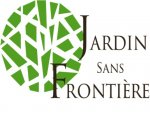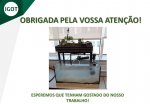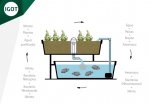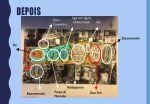accueil site > Paysage et patrimoine > 12. Pedagogic tools > 17. Pedagogic tools > 09992. 29 - The garden in the planning of the territory of the (...)
- 01. Fiches pédagogiques
- 01. Teaching materials
-
02. Jardin sans frontière : une école pour développer les compétences -clés en Europe
- 04. Partenaires
- 05. Rencontres transnationales
- 14. À l’école du jardin. Mobilités de formation dans les jardins d’Europe
- 15. À l’école européenne du jardin. Paroles de formateurs sur leurs formations "entre pairs"
- 16. A l’école auropéenne du jardin. Paroles d’apprenants sur leurs mobilités Erasmus+
- 19. Petit glossaire "européen" du jardin
- 20. Dissémination
- 21. Exploitation locale du projet
- 03. Un nouvel Erasmus+ : Le bleu européen comme étendard contre l’exclusion des adultes
-
09. Erasmus+ partenariato
-
Cammini del Blu in Europa
- 01. Incontri transnazionali
- 05. Progetti blu di partners
- 10. Percorsi europei del Blu
- 20. Storie blu
- 40. Disseminazione
- 43. Transcultural Carpet Blue
- 45. Missive blu
- 46. Glossario blu
- 47. Schede didattiche "Pedagogia del colore blu in Europa"
- 48. Illustrazioni delle schede didattiche : Mostra delle opere degli studenti
-
Giardino senza frontiere. Una scuola per lo slivuppo di competenze chiave in Europa
- 04. Partners
- 05. Riunioni transnazionali
- 14. Alla scuola del giardino. Mobilità di formazione nei giardini d’Europa
- 15. Alla scuola del Giardino. Parole di formatori sul loro addestramento "tra pari"
- 16. Alla scuola del giardino. Parole dei discenti sul loro Erasmus + Mobilità
- 19. Piccolo glossario europeo del giardino
-
Cammini del Blu in Europa
-
11. Erasmus+ Partnership
- 01. Transnational Meetings
- 05. Blue Projects of partners
- 07. European roads of the Blue
- 10. Blue stories
- 40. Dissemination
- 43. Transcultural Carpet Blue
- 45. Blue Missives
- 46. Blue Glossary
- 48. Roads of the blue : the file
- 50. Illustrations of the pedagogic file : exhibition of works of learners
-
51. Garden Without Borders : A School for Developing Key Competences in Europe
- 04. Partners
- 05. Transnational meetings
- 14. At Garden School. Training mobilities in the gardens of Europe
- 15. At Garden School. Words of trainers on their "peer-to-peer" training
- 16. At Garden School. Learners’ words about their mobility Erasmus +
- 19. Small European glossary of the garden
- 20. Dissemination
-
11. Partenariats Erasmus+
-
01. Les chemins du bleu en Europe
- 01. Rencontres transnationales
- 05. Projets bleus des partenaires
- 10. Routes du Bleu en Europe ...
- 20. Histoires Bleues
- 40. Dissémination
- 43. Transcultural Carpet Blue
- 45. Missives bleues
- 46. Glossaire bleu
- 47. Formation pédagogique : fiches pédagogiques et référentiel de compétences clés et transversales
- 50. Illustrations des fiches pédagogiques : exposition des travaux des apprenants
-
01. Les chemins du bleu en Europe
- 12. Pedagogic tools
- 17. Fiches pédagogiques
- 17. Schede Pedagogiche
Paysage et patrimoine
09992. 29 - The garden in the planning of the territory of the townmardi 14 mai 2019
PROJECT
The project exploits MPD (Municipal Planning Directory) of the town of Faro, Portugal, which aims at an increasing participation of the population in the decisions concerning the planning of the territory. The pedagogical activities inherent in this project favour the social inclusion of the students with the involvement of the most disadvantaged and motivate them through the analysis of the spaces where they live by promoting proposals for their imrpovement
PUBLIC
This pedagogical card has been drafted and developed with students with learning difficulties, aged 14 to 18, of the Agrupamento de Escolas Joao de Deus of Faro
KEY COMPETENCES
![]() Communication in the mother tongue
Communication in the mother tongue
![]() Scientific and mathematical competences
Scientific and mathematical competences
![]() Learning to learn
Learning to learn
![]() Social competences and citizenship
Social competences and citizenship
![]() Humanist culture and expression of sensitivity
Humanist culture and expression of sensitivity
OBJECTIVES
![]() To trace an urban itinerary through the gardens and the green spaces of the town
To trace an urban itinerary through the gardens and the green spaces of the town
![]() To build awareness about the improvement of the urban environment and the importance of the green spaces in towns
To build awareness about the improvement of the urban environment and the importance of the green spaces in towns
![]() To increase motivation as regards the preservation of the local natural heritage
To increase motivation as regards the preservation of the local natural heritage
![]() To develop entrepreneurship, citizenship and solidarity
To develop entrepreneurship, citizenship and solidarity
GARDENS EXPLORED _The gardens of the town of Faro, Portugal
MATERIALS
![]() Plans of the town, districts, green sites and all the documents available at the MPD
Plans of the town, districts, green sites and all the documents available at the MPD
![]() Drawing materials
Drawing materials
![]() Mobiles /cameras
Mobiles /cameras
![]() Publications allowing for the identification of the local flora and fauna in the gardens, including invasive species
Publications allowing for the identification of the local flora and fauna in the gardens, including invasive species
DEVELOPMENT
1.In the classroom. To read and identify the green sites of the town, of the district chosen on the plan
![]() To locate the existing green zones with the GPS coordinates of the mobile
To locate the existing green zones with the GPS coordinates of the mobile
![]() To identify the roles of these spaces, size and equipment
To identify the roles of these spaces, size and equipment
![]() To carry out surveys on the number and quality of the gardens in the region
To carry out surveys on the number and quality of the gardens in the region
![]() To choose one or more gardens of the district to be analysed on site
To choose one or more gardens of the district to be analysed on site
2.On site. Personal approach to the garden
![]() To invite to touch the plants, perceive their texture, forms, smell and their different green, the colours of the soil and the sound of the water seeping into the ground saved from concrete
To invite to touch the plants, perceive their texture, forms, smell and their different green, the colours of the soil and the sound of the water seeping into the ground saved from concrete
![]() To be aware of the scope of the garden : natural sites humanize the town, the gardens establish a rapport of proximity with nature, they offer different uses : walking, reflecting, reading, talking, playing, eating, resting, studying, working…
To be aware of the scope of the garden : natural sites humanize the town, the gardens establish a rapport of proximity with nature, they offer different uses : walking, reflecting, reading, talking, playing, eating, resting, studying, working…
![]() Among these gardens, many have been transformed into vegetable gardens which implies other uses : to learn how to take care of the garden, plant, cut, transfer, water, clean are all tasks to be carried out by young and aged people in these small spots
Among these gardens, many have been transformed into vegetable gardens which implies other uses : to learn how to take care of the garden, plant, cut, transfer, water, clean are all tasks to be carried out by young and aged people in these small spots
![]() To rally the students so that they identify the main faults of the area where they live : observing, classifying : the deterioration of plants, lack of space, plant diversification….
To rally the students so that they identify the main faults of the area where they live : observing, classifying : the deterioration of plants, lack of space, plant diversification….
3.On site. Collective scientific approach to the garden
![]() In group, to observe and identify all that is visible in the garden. Use of proper botanical and scientific vocabulary
In group, to observe and identify all that is visible in the garden. Use of proper botanical and scientific vocabulary
![]() To learn how to identify the plants with the help of documents on flora : to distinguish the native species from the invasive ones. To know the biodiversity and adaptability of the native and exotic flora and fauna. To take pictures of the unidentified species to proceed to their identification in the classroom
To learn how to identify the plants with the help of documents on flora : to distinguish the native species from the invasive ones. To know the biodiversity and adaptability of the native and exotic flora and fauna. To take pictures of the unidentified species to proceed to their identification in the classroom
4.In the classroom. To employ the plans to design proposals of re-qualification of the deteriorated green spaces or to create new green sites in the urban network
![]() To propose functional alternatives for a sustainable and durable improvement. To consider the needs identified on site in order to make these gardens convivial, healthy spaces where art is present, too
To propose functional alternatives for a sustainable and durable improvement. To consider the needs identified on site in order to make these gardens convivial, healthy spaces where art is present, too
![]() To trace a new urban itinerary through the re-qualified or recreated gardens and the other green sites of the town
To trace a new urban itinerary through the re-qualified or recreated gardens and the other green sites of the town
![]() To present the project on boards in the school to parents, general public and the authority responsible for the urban planning of the town
To present the project on boards in the school to parents, general public and the authority responsible for the urban planning of the town
EXTENSION
![]() To post articles on the web page of the school
To post articles on the web page of the school
![]() To propose a collaboration on the planning of the town concerning the green sites studied : waste collection, garden maintenance, plantations
To propose a collaboration on the planning of the town concerning the green sites studied : waste collection, garden maintenance, plantations
EVALUATION
It takes into account the ability to :
Master the mother tongue, oral and written communication
![]() draft the project minding grammar rules and spelling
draft the project minding grammar rules and spelling
![]() present and support the project using the proper vocabulary
present and support the project using the proper vocabulary
![]() enrich the technical vocabulary connected to the theme of work
enrich the technical vocabulary connected to the theme of work
Develop social and civic competences
![]() communicate the project
communicate the project
![]() dare to speak and address
dare to speak and address
![]() debate and accept other opinions during the team work
debate and accept other opinions during the team work
![]() develop awareness about one’s own citizenship, inclusion in the municipal project, solidarity and entrepreneurship
develop awareness about one’s own citizenship, inclusion in the municipal project, solidarity and entrepreneurship
Develop basic scientific and technological skills
![]() implement and improve ICT competences both for the digital presentation of the project and the use of software for the plans/cards
implement and improve ICT competences both for the digital presentation of the project and the use of software for the plans/cards
![]() apply scientific knowledge related to geography, biology, geology
apply scientific knowledge related to geography, biology, geology
![]() use specific scientific terminology related to the reality studied as regards botany and natural sciences
use specific scientific terminology related to the reality studied as regards botany and natural sciences
Learning to learn
![]() rally the knowledge helpful to the analysis of the site (biology, geology, philosophy, history, geography)
rally the knowledge helpful to the analysis of the site (biology, geology, philosophy, history, geography)
![]() carry out researches and select information
carry out researches and select information
![]() work individually, describe the different phases to realise a project
work individually, describe the different phases to realise a project
AUTHOR
Anabella Vaz
Agrupamento de Escolas Joao de Deus, Faro, Portugal
TRANSLATER
Mary Gino
Association Acquamarina, Trieste, Italie
















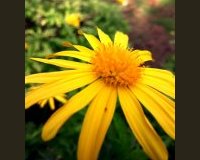
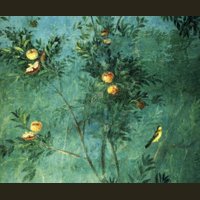
 Version imprimable
Version imprimable